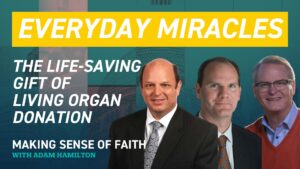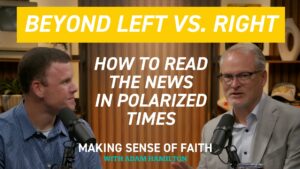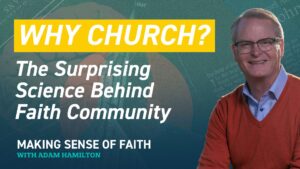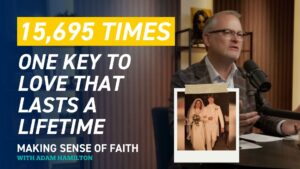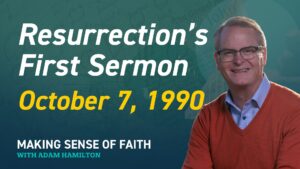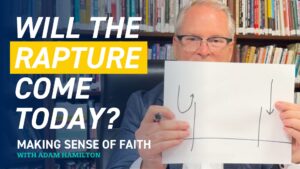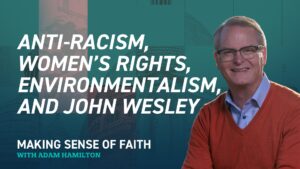Many people today think of Christianity as an intolerant, smug majority religion.
Too often people who call themselves Christians behave in a manner that fits that image. But when they do, it is because they have lost sight of their faith’s daring roots, particularly embodied in the final book of their Bible. It’s called the book of Revelation, and many people think of that book as nothing more than a garish (and often incomprehensible) recital of horrible, scary “last day” events.
That’s not how the book’s first century readers would have seen it. Their Christian faith was far from a majority in any sense of the word. As scholar Craig Keener wrote, “It is easy for modern readers to miss John’s audacity: banished to an island, he recounts a funeral dirge over the most powerful empire the Mediterranean world had ever known (Revelation 18: 2). Rome was close to the height of its power; the church was growing but may have constituted less than 0.1 percent of the empire’s population. Yet because John knew that God’s people had outlived the earlier, powerful empire of Babylon, just as the prophets had predicted, he had every reason for confidence that the same would happen regarding other powerful empires, including the empire that he lived under. Within five centuries a weakened Rome was sacked.” (NIV, Cultural Backgrounds Study Bible (p. 11188). Zondervan. Kindle Edition.)
The book’s very first words set its crucial focus— “A revelation of Jesus Christ.”
“Revelation” is an English translation of the Greek word apocalupsis (from which we get “apocalyptic”). It was a type of writing quite familiar in first-century Jewish and Christian communities, reporting visions that revealed God’s power, glory, goodness and ultimate victory over all the defiant forces of evil (in the writer’s day, the Roman Empire in particular—cf. Revelation 17:9) through vivid, evocative symbols. Like later symbolic works such as Pilgrim’s Progress, the book was honest about the dark, painful times God’s people may face in this world, but it ended with a joyous, light-filled vision of the day when God’s mission is fully accomplished, and the world is restored to its intended wholeness. In Revelation 22:2, the tree of life, denied to humans after the fall in Genesis 3, is seen in the restored earth, and its leaves are for “the healing of the nations.”
Revelation embodied the Christian confidence that one day there will be no more disease, death or suffering.
One day there will be no more violence and war. One day there will be no more sin of any kind. What God has always wanted will fully become reality.
God has always wanted the world to be whole, and still does.
God is working right now to transform this world in the direction of that day. This is God’s Kingdom dream. Everyone on earth (including you) is called into this Kingdom dream. Some people choose not to live with Jesus as their King. But those who choose to make Jesus the King of their life accept God’s call and commit to taking part with God in God’s redemptive work.
Christians believe the future is bright and full of hope!
It is a future of new creation. God will restore the world to its intended wholeness and in doing so will give immeasurable value and worth to all present faithful actions of proclaiming and embodying the Good News of Jesus Christ. The Christian response to the present needs of this world is driven by the future God promises to shape.
Until that day comes, God’s people wait. But they do not wait passively.
They believe in the Kingdom and want everyone everywhere to experience God as King. They act. They join the procession of God’s people through the centuries who have served God’s Kingdom faithfully with indomitable hope. They wait for the Kingdom’s full reign and strive to live a life that reflects the Kingdom God desires. They wait for Jesus to return to resurrect all of God’s people to spend eternity with God. They choose to faithfully and joyfully do things that help people everywhere experience God, making the world look more like heaven, right here, right now, on earth. To participate with God is act like Jesus toward all and announce the Kingdom of God. And they look forward, with eager trust, to the day when God will make this broken world new, and welcome all of God’s children into that splendid garden filled with life and love forever.

